The Roses Never Bloom Again Written by Mr Riddle

It's always a beautiful day in the neighborhood thanks to Fred Rogers. For 33 years, he was the creator, showrunner and host of the American television set serial, Mister Rogers' Neighborhood. He transformed children's television receiver, promoting kindness and speaking openly about children's emotional and physical concerns.
Rogers won the hearts of many people. He also earned honorary degrees and awards, including the Presidential Medal of Freedom and a Lifetime Accomplishment Emmy. Was there anything this human couldn't practice? Read on to learn more about the legacy of anybody's honey "neighbor," Mr. Rogers.
He Hated TV, So He Inverse Information technology
When Rogers turned on the goggle box, he frequently saw violence and people demeaning each other. The inhumanity made him furious, then he decided to inspire modify in the medium, assertive there was a mode to "nurture" viewers with a mannerly and gentle programme. Equally a outcome, he created Mister Rogers' Neighborhood to spread knowledge and kindness. The show'south product and sets were basic, but that didn't stop information technology from becoming groundbreaking television.
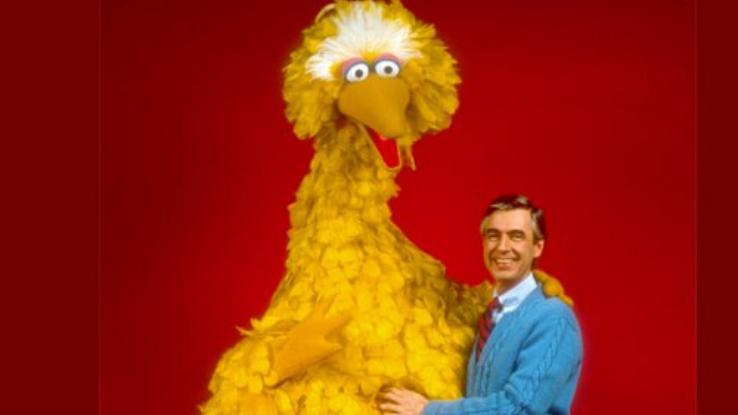
Not only did Rogers brand a significant impact on kids and their parents, but he also influenced celebrities. One of his fans is Michael Keaton, who ended up hosting a lovely Mr. Rogers documentary called Information technology'due south You I Similar. Tom Hanks also adores Rogers and portrayed him in the 2019 picture A Beautiful 24-hour interval in the Neighborhood.
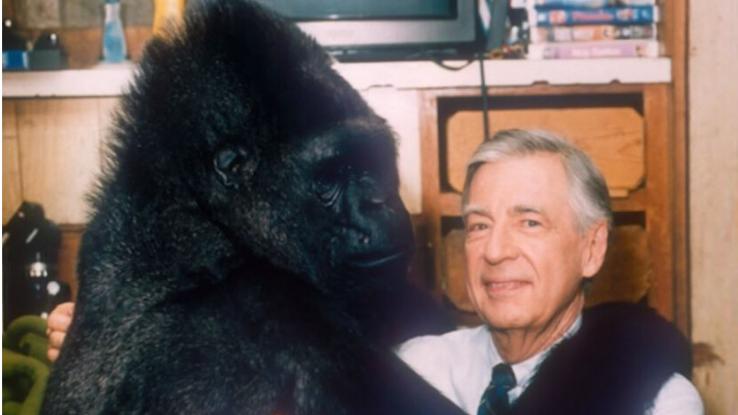
One of Rogers' biggest fans wasn't even human. Koko, the Stanford-educated gorilla who knew 2,000 English words and 1,000 words in American Sign Language, loved him likewise. When Rogers met her, she instantly welcomed him with open artillery and took off his shoes (the same way he does on the show).
He Personally Responded to Every Letter from Fans
Rogers' daily routine included waking up at five every morning, praying, writing, studying, exercising and replying to all his fan mail service. The show'southward program assistant, Heather Arnet, told the Pittsburgh Post-Gazette, "He respected the kids who wrote them. He never idea about throwing out a drawing or letter of the alphabet. They were sacred."
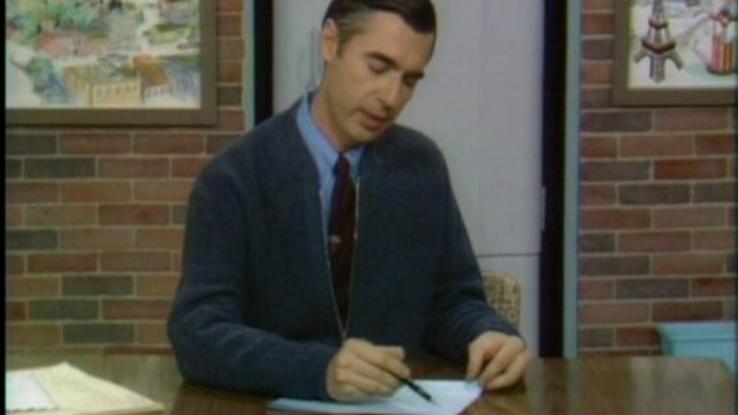
The letters were more just drawings and ramblings. Many children opened upwardly to him virtually their personal issues, such equally a loss in the family unit or other serious problems. Each solar day, Rogers received 50 to 100 letters from fans, and he wrote back to each i. Today, the Fred Rogers Center in Latrobe, Pennsylvania, holds almost i meg of those letters.
He Was a Gifted Musician
After attention Dartmouth Higher for i year, Rogers transferred to Rollins Higher. He graduated magna cum laude with a degree in music. As a talented songwriter, he created all the tunes for Mister Rogers' Neighborhood, which is more than 200 songs. He too played the piano magnificently, and it shows in each episode.
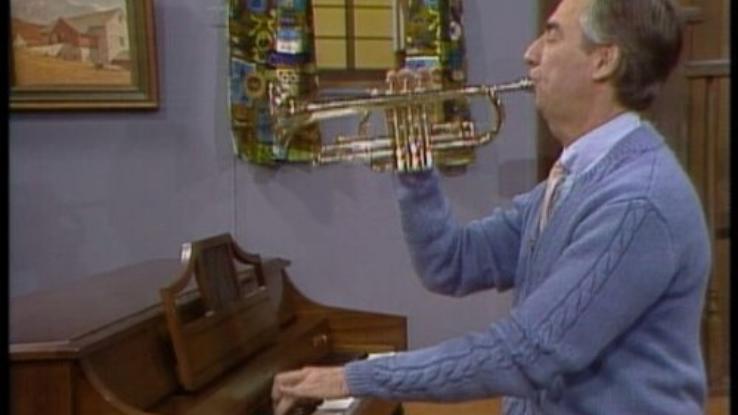
Rogers created music at a young historic period, even after getting bullied. When he was a child, life was tough. He was shy and overweight, and his classmates teased him. "I used to cry to myself when I was alone. And I would cry through my fingers and make up songs on the piano," recalled Rogers.
He Saved Public Television and the VCR
In 1969, Rogers went to Washington D.C. to help stop upkeep cuts for public telly. He presented his case in forepart of the Senate, explaining how he could help children. "I feel that if we in public television tin only make it clear that feelings are mentionable and manageable, we will accept washed a cracking service for mental health," Rogers explained to the Senate. He did more than than simply stop the budget cuts past the finish of the hearing. Within six minutes, he convinced the committee to provide $22 one thousand thousand in funding for public TV.
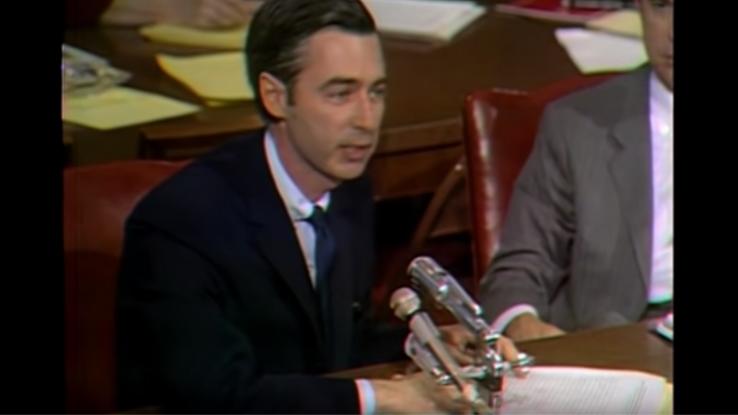
In 1984, Rogers supported the "fair use" of media in a Supreme Court case. Some people considered recording Idiot box shows to be copyright infringement. Yet, Rogers influenced the outcome, arguing that information technology was important for parents to exist able to record children's programs and spotter them at more than plumbing fixtures times as a family.
He Cared Deeply About Others
From 1968 to 2001, Rogers made sure to utilize his show for good. Focusing on children's emotional and physical struggles, he included many personal topics because he cared about his audience's needs, concerns and happiness. He answered questions about everything from scary haircuts to fights with siblings to divorce and war.
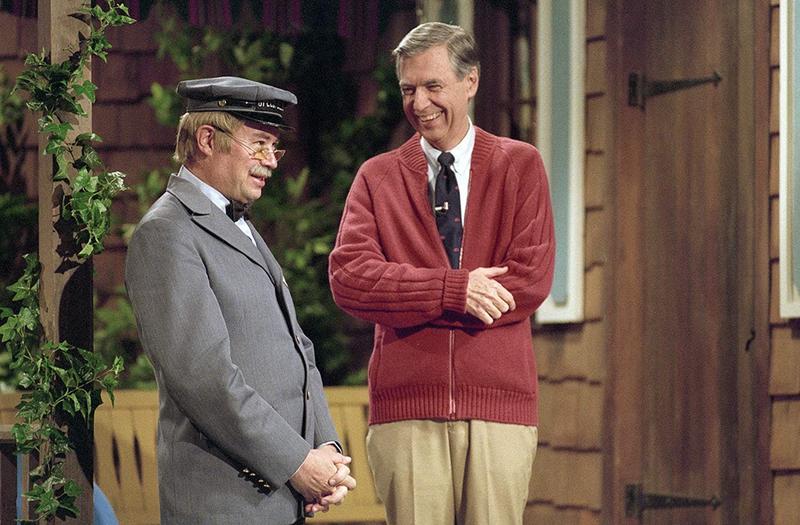
Rogers was well-prepared for his immature audience because he attended the Academy of Pittsburgh's Graduate School of Child Development. He as well worked with a child psychologist for thirty years.
Many people found Rogers caring, including reporters and limo drivers. During interviews, he asked reporters questions about their lives and got to know them. Information technology wasn't uncommon for him to call them every in one case in a while to keep in touch. He did the same to one of his limo drivers. During one of the rides, the commuter mentioned they were passing his firm. Wanting to encounter the driver'south family, Rogers asked if they could stop past. The result was heartwarming. Rogers played the pianoforte and talked to the family into the nighttime.
Source: https://www.ask.com/entertainment/legacy-fred-rogers?utm_content=params%3Ao%3D740004%26ad%3DdirN%26qo%3DserpIndex
0 Response to "The Roses Never Bloom Again Written by Mr Riddle"
Post a Comment